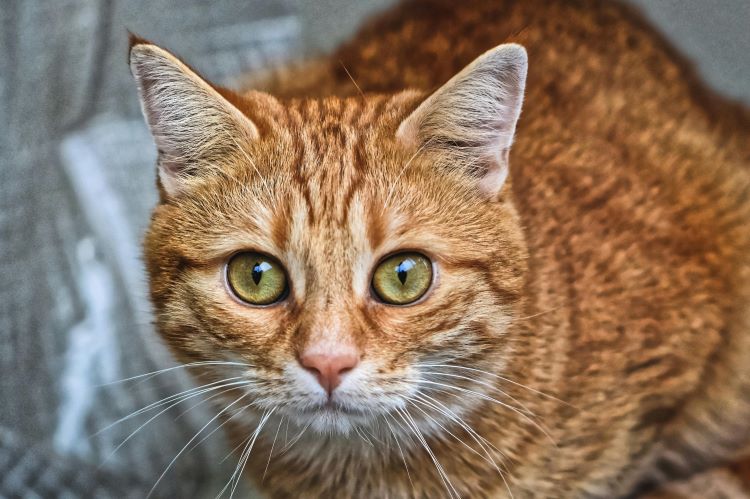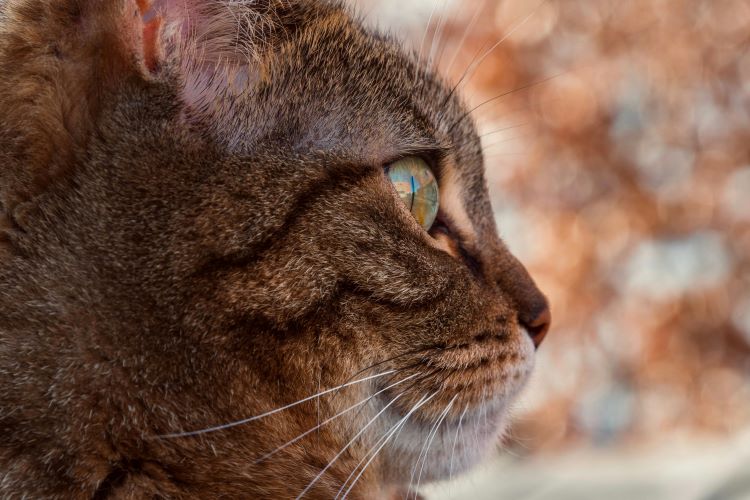Ready to help treat your pet to a healthy life?
Are Cats Smarter than Toddlers? Study Shows Cat Word Association is a Thing
By : Brianna Gunter | Published Nov 21, 2024

Cats, much like dogs, have long been thought of as similar to human toddlers or even as “perpetual toddlers” when it comes to intelligence. But what if they were actually a step above? Exciting news for cat owners! New research indicates our feline friends could be even smarter than previously thought. A recent study published in October found that not only could cats associate words with images, but they could do so at a rate faster than human babies.
So, what does this mean exactly for cats and their humans? It probably depends on your particular relationship with your feline. If you speak to your cat often, they may be able to understand you better than you think.
The study of cats’ ability to learn words
To examine word association in cats, a team of animal behavior researchers from Japan’s Azabu University adapted test methods traditionally used with human babies. First, cats were presented with two meaningless word-picture combinations. Then, half of the combinations were switched up. The idea behind this is that subjects who are learning will stare longer at new combinations and be able to detect them. In order to determine whether or not it was human words the cats would respond to, the study was repeated with mechanical sounds in place of speech.
In order to prevent the cats from growing fearful or timid in unfamiliar settings, they were all tested within their own homes. Fascinatingly, all 31 cats in the study aced the tasks given to them. The cats detected when changes were made in all combinations that included human spoken words with pictures. Even more surprising? The cats were found to detect changes in combinations faster than human toddlers.
Does this mean cats are smart?
In a nutshell, yes, cats displaying basic language comprehension skills is a measure of intelligence. Previous studies have likewise found that cats are able to learn their own names (even if they like to not respond to them) and can even pick up basic commands!
All of this goes to show that cats are smarter in ways they’re often not given credit for. But just like people, every feline is different, of course. So if you have multiple cats in your lifetime, they may vary in the words they can and cannot learn.
6 words to try teaching your cat
Your cat may not be as receptive to training as dogs are. However, this doesn’t mean they can’t learn at all. Visual association and repetition are key for teaching any words to cats. And, just as with dogs, starting word association when cats are still young is likely to have better outcomes.
You likely won’t have your pet fetching your newspaper anytime soon, but you can start exploring your cat’s word-learning skills with the following:
- Their name (an obvious choice)
- “High-five”
- “Sit”
- “Stay”
- “Come”
- “Treat”
For the best outcomes, keep training sessions short and sweet, with just several repetitions each time. And be sure to have treats on hand (an opportunity to help them learn that word as well) for when they get things right. A lot of your success will likewise depend on your cat’s mood — they’re a cat, after all.
It’s also worth noting that your tone may also have a lot to do with how your cat perceives language. Keep things positive by speaking upbeat and friendly, and your cat is more likely to be drawn to what you’re saying.

Encourage your cat’s intelligence
How smart your cat is will depend on their genetics, early life, and just pure luck. But if you’ve recently adopted a kitten or have a young cat, there are some things you can do to help promote their cognitive growth.
Engage your cat with puzzle toys that encourage problem-solving. You can also introduce interactive games like hide-and-seek, where they have to “hunt” for treats. Rotate toys regularly to keep them mentally stimulated, and try clicker training to teach simple commands, which can improve memory and focus. Playing with laser pointers or feather toys helps improve agility and coordination. Providing window perches for watching birds and outdoor activity will also help keep them engaged and curious.
Finally, maintaining a stable routine helps reduce feline stress, fostering a safe and more receptive environment for mental development.
On that note, your cat’s health is integral to their ability to learn and grow. In addition to keeping up with routine veterinary visits and feeding your cat a healthy diet, it’s a good idea to protect them with a good cat medical insurance plan. While it won’t help your cat learn new words or training skills, it will be there if they get into any accidents or get an unexpected illness along the way.
Enjoy reading about pet intelligence? Find out if cats or dogs are smarter.
